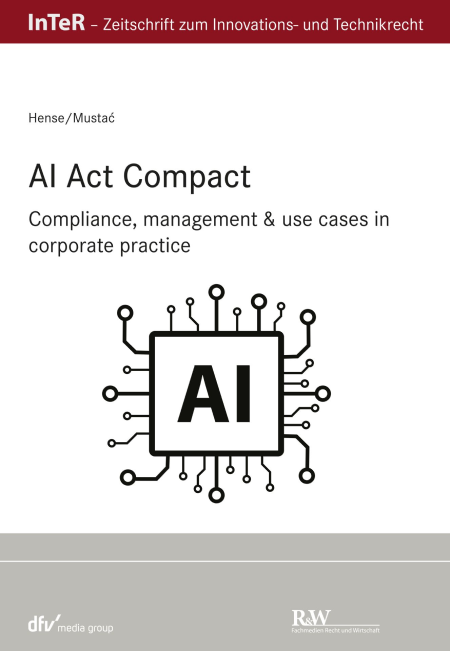
The EU AI Act is here, and contrary to popular opinion, it is not just Europe’s problem. As the first comprehensive law to regulate AI systems, the AI Act attempts to establish a global framework, setting limits on dynamic technological developments and creating new legal responsibilities for organisations worldwide. The AI Act’s definition of AI systems is expansive, covering a wide range of technologies, even those that, until recently, were considered traditional machine learning models. This makes understanding and preparing for compliance even more critical, because if your business involves AI, the AI Act is now your business.
AI Act Compact is your go-to tool for tackling the challenges imposed by the Act. Written by Tea Mustac and Peter Hense, experienced legal experts and hosts of the podcast RegInt: Decoding AI Regulation, this book provides a deep dive into the AI Act’s key provisions, processes, and real-world implications.
The AI Act introduces a new risk-based framework, establishing compliance assessments and relying on harmonized standards. It imposes obligations for data governance, data quality management, accuracy and robustness, risk management, explainability, non-discrimination, accountability, liability, human controllability and more. Implementing these requirements presents significant practical challenges, especially given their broad application to numerous actors along the AI supply chain.
Drawing heavily on international technical standards from CEN/CENELEC, ISO, IEC, and IEEE, the authors provide a practical toolkit for managing AI risks and ensuring compliance. Whether you’re a lawyer, data scientist, or machine learning engineer, this book offers clear, actionable strategies for staying compliant and competitive in this fast-evolving landscape.
Want another book on the AI Act? Have a look at AI Act: A Practical Guide